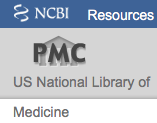Phytother Res. 2018 Apr;32(4):750-754. doi: 10.1002/ptr.6016. Epub 2018 Jan 29.
Nani BD, Franchin M, Lazarini JG, Freires IA, da Cunha MG, Bueno-Silva B, de Alencar SM, Murata RM, Rosalen PL.
Abstract
Vestitol and neovestitol are bioactive isoflavonoids isolated from Brazilian red propolis, a unique Apis melifera type of propolis botanically originated from Dalbergia ecastophyllum. Although these molecules have relevant biological effects, including anticancer and immunomodulatory activities, their mechanism(s) of action and the affected pathways remain largely unknown. Here, we carried out a pharmacogenomic analysis to investigate the effects of vestitol and neovestitol on the whole-genome expression in human tumor cells, particularly cancer-related target proteins. HeLa cells were exposed to the compounds at IC20 and genomic information of treated cells was analyzed using the Illumina transcriptome system and GeneGo MetaCore software. Our results showed that vestitol (IC20 = 214.7 μM) reduced the expression of genes enrolled with the alpha tubulin (fold -3.7), tubulin in microtubules (fold -3.7), and histone h3 (fold = -3.03), and that treatment with neovestitol (IC20 = 102.91 μM) downregulated prostaglandin E synthase gene (fold = -3.12), which are considered ideal targets for anticancer therapy. These data open avenues for the study of vestitol and neovestitol as potential promising candidates for anticancer therapy. Toxicological, non-clinical, and clinical validation of the findings presented herein is needed.
* THESE STATEMENTS HAVE NOT BEEN EVALUATED BY THE FOOD AND DRUG ADMINISTRATION. THIS IS NOT INTENDED TO DIAGNOSE, TREAT CURE OR PREVENT ANY DISEASE.
